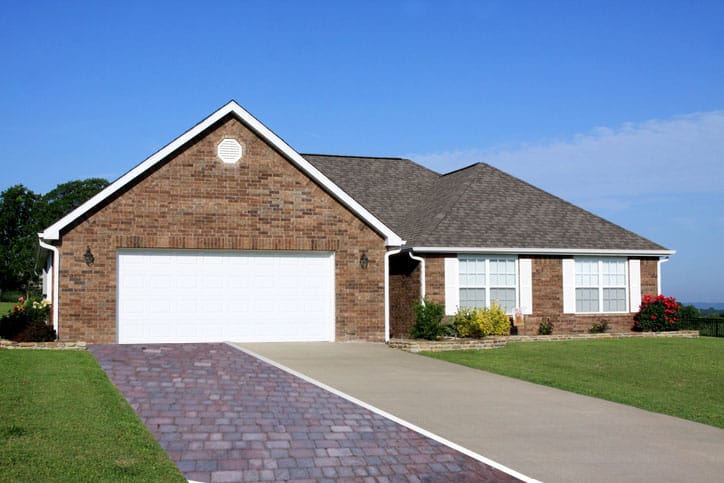Brick pavers vs. concrete – it’s a classic debate in the hardscaping world. Concrete is often less expensive, but bricks look better and require less maintenance. What’s the right choice for you? Let’s compare the benefits of both options to determine if brick pavers are better than concrete.
Basic Overview of Brick Pavers vs. Concrete
To set the stage, it’s important to understand the basic differences between brick paving and concrete. Concrete is poured into a solid slab and can be made to fit almost any form. It hardens to a durable, long-lasting consistency, and it’s used in both residential and commercial settings.
Brick paving involves individual blocks that are laid in a pattern to form a patio, walkway, driveway, etc. The pavers have sand in between them, but they do not adhere to each other or the ground. This allows the bricks to shift with changes in the weather, and it makes them easy to reset in the future.
Both options provide a reliable hard surface for outdoor activities, but one may be better suited to your needs.
Benefits of Brick Pavers over Concrete
Brick pavers may cost more than concrete upfront, but they actually cost less over their lifetime. Concrete is subject to cracking, especially on Michigan’s sandy soil. Once the cracks reach a certain point, the only option is to replace the slab. That can be costly.
Brick pavers are generally considered more aesthetically pleasing than concrete, though you can get stamped concrete that looks like stone or pavers. In neighborhoods with high-value homes, brick paving may be a staple in exterior design. This is a great option for enhancing your curb appeal or adding visual interest to a boring exterior.
If the pavers become uneven or shift out of place in the future, it doesn’t take much to relevel them and add new sand between the joints. Your paving will look brand new, but you don’t have to pay for all-new materials.
Benefits of Concrete over Brick Pavers
The big advantage to using concrete instead of brick pavers is the cost savings. Bricks tend to require more labor, and the materials themselves may be more expensive than concrete (depending on what you select). The installation timeframe will likely be longer, which may not work if you’re on a tight renovation timeline.
Concrete is also incredibly versatile with regards to shapes. You can put as many curves or sharp edges as you want in your design, and the concrete can pour to fit the pattern. This is technically achievable with brick pavers too, but complicated shapes require tedious craftsmanship to complete.
Concrete is a standard material in most neighborhoods, but it may be inadequate in certain settings. If all of the homes around you have gorgeous brick pavers for the hardscaping, using concrete on your home may hurt value or future sales potential.
Could You Mix Brick Pavers and Concrete?
Yes! In fact, this is what many homeowners do to get the best of both worlds. They’ll use flat pour concrete to cover large areas, and then add brick paver borders for a touch of class and design. You just need to make sure you have the right team to do this kind of installation. Not all brick pavers pour concrete, and not all concrete companies offer brick paving. Grosse Pointe Chimney Repair offers both services! We can customize a hardscaping plan to fit your budget and design goals.
How to Plan Your Perfect Outdoor Makeover
The best way to determine if brick pavers are better than concrete for your property is to get a quote for both. Assess the price, timeline, projected return, and overall appearance to decide which option best suits your needs. Grosse Pointe Chimney Repair offers free estimates, and we’d love to discuss your options. Please call (313) 263-1660 to get started.
